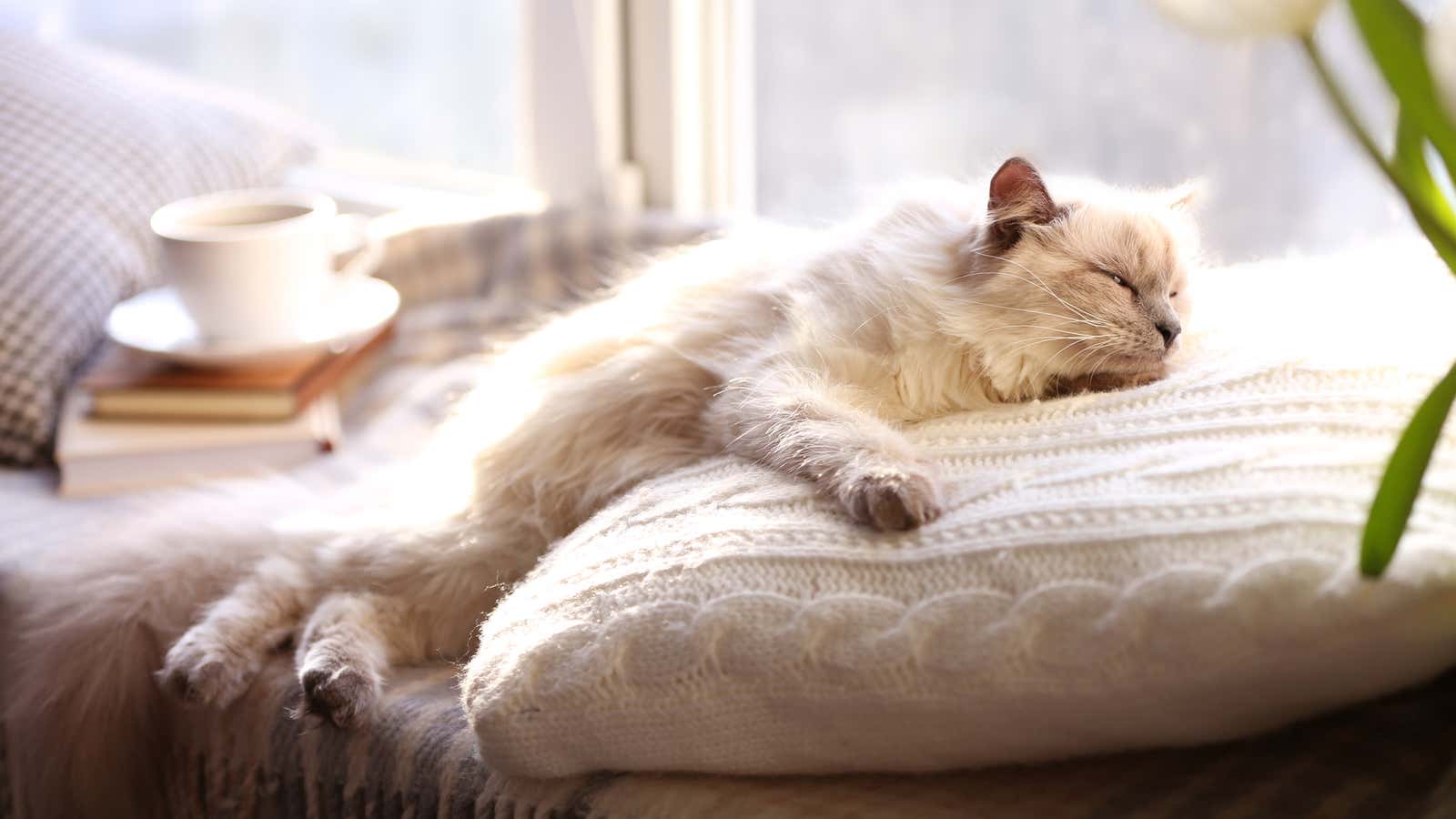An Essential Oil Spray Can Cause Illness in Pets

Pets can often tell you how they are feeling, but it can be difficult to tell when they are sick. Their illnesses can seem so vague and amorphous – a little vomiting here, some weird lethargy there – and it can be hard to tell a slight displeasure from the weather and the onset of a major problem.
Of course, there is always a veterinarian to help sort out what is going on. Sometimes the answer is surprising:
When this Twitter user noticed that both her cat and dog were behaving strangely, she took them to the vet and found they were sick with the essential oils in her diffuser.
When I saw this tweet, I had to wonder – was my cat’s recent vomiting caused by my own essential oil diffuser? I used lavender and pine oil from time to time. I would never put these oils on my cat’s body or in her water, but I didn’t think to test if the oils in the air could harm her.
The ASPCA has a trusted Animal Poisoning Information Center and Hotline, and their recommendations for essential oils are widespread:
Cats are especially sensitive to essential oils, and when ingested in significant amounts, effects such as gastrointestinal upset, central nervous system depression and even liver damage can occur. Inhalation of oils can lead to aspiration pneumonia. There are significant differences in the toxicity of specific oils. For this reason, we do not recommend using essential oils in areas that your pets have access to, unless the pets are supervised or the use of the oil is approved by your veterinarian.
Which exposure is dangerous?
I reached out to Dr. Tina Wismer, Medical Director of the ASPCA Animal Poisoning Control Center, for more information.
Wismer says that if pets don’t have respiratory problems, skin exposure is more dangerous than inhalation. She notes that pets can absorb topically applied oil through the skin or swallow it orally when grooming. While there are some pet-friendly products, such as flea products, that contain essential oils, low concentrations are safe for pets. But you should still only use these products for their intended purpose. “Cats are especially sensitive to high levels of toxins because their liver has fewer metabolizing enzymes compared to dogs,” explains Wismer. So don’t use the dog product on the cat.
However, the proliferation of essential oils can still be hazardous to pets. “The most common symptoms for cats and dogs exposed to diffuse essential oils are drooling, vomiting, coughing and sneezing. Spreading oils can be fatal to cats and dogs with asthma or other respiratory conditions, ”notes Weiser.
What are the worst oils?
Any essential oil can be harmful to pets, according to Wismer, depending on how often they are exposed and how. But especially poisonous pet oils include wintergreen, d-limonene (citrus), pine, cinnamon, penniroal, eucalyptus, and tea tree. You may still have a diffuser in your home, but Wismer suggests keeping your pet and the working oil diffuser in separate rooms and avoiding using the device for extended periods.
God saves man, who save himself. I love my diffuser, but not as much as I love my cat, especially when she’s not vomiting.
This story was originally published in 2018 and was updated on January 28, 2021 in line with the Lifehacker style guidelines.